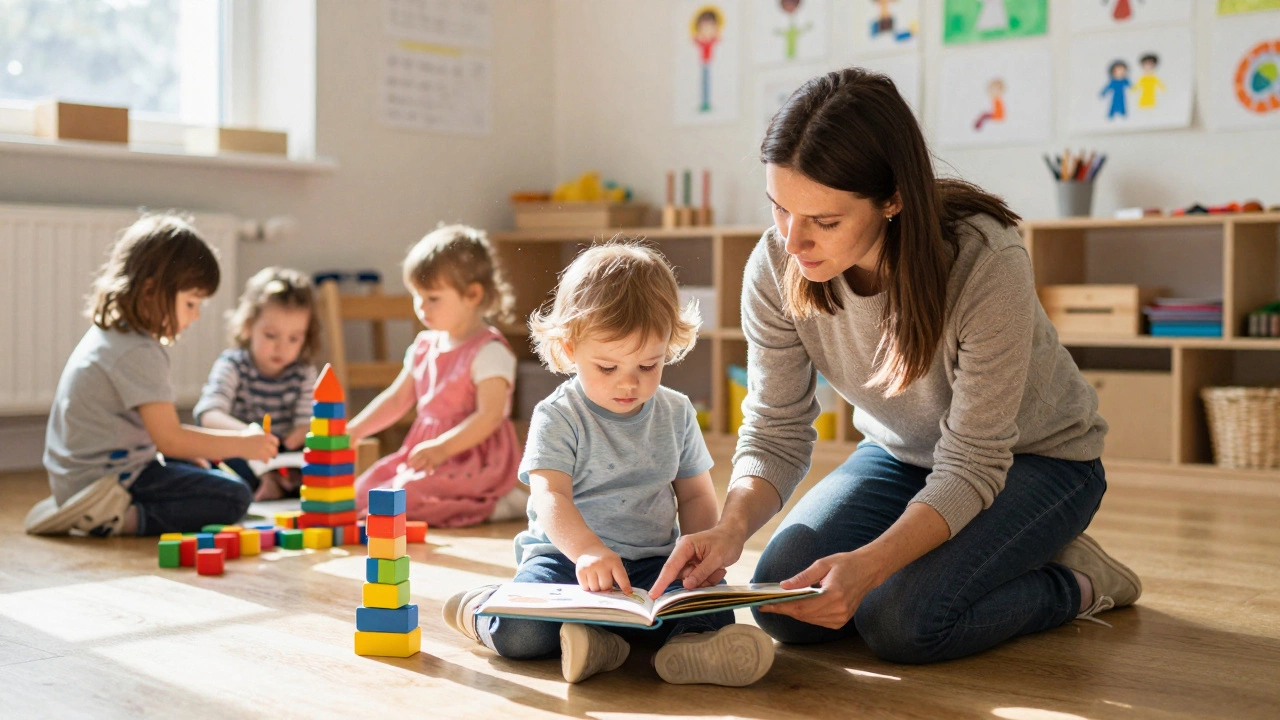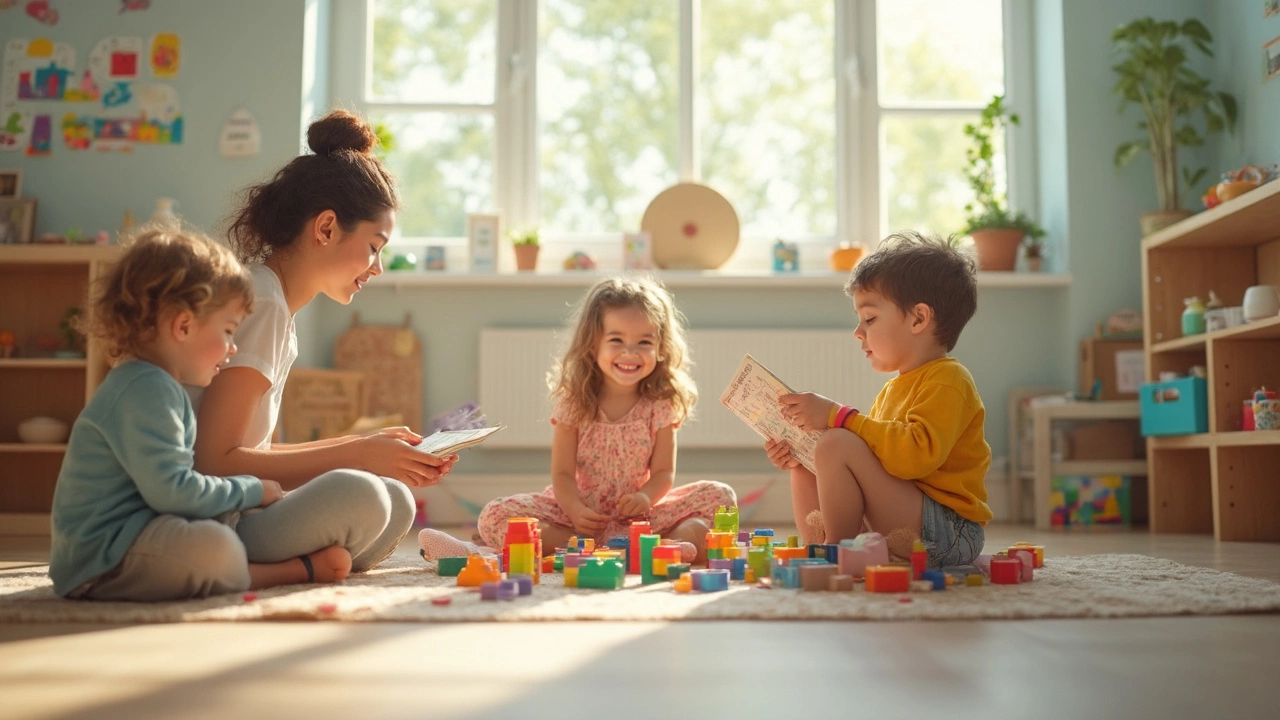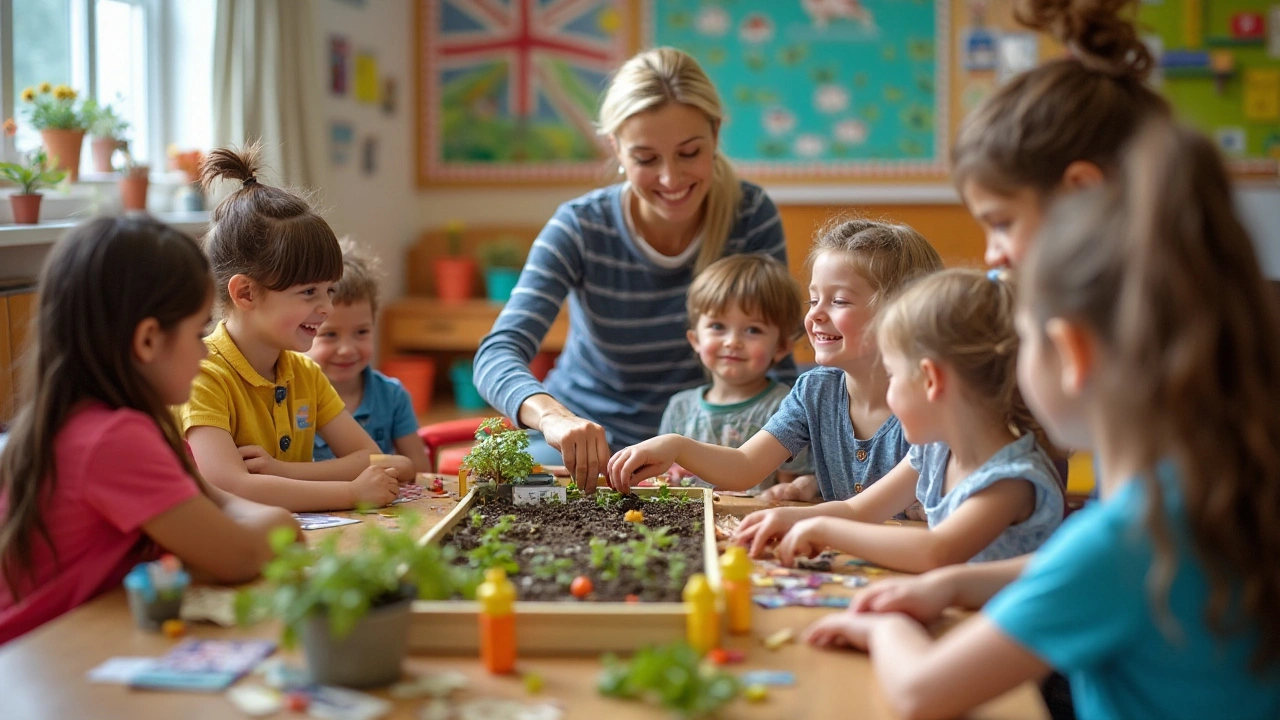Early Years Education at St. Andrews – Building Foundations
Welcome to the Early Years section of St. Andrews Educational Institution in Shifnal. Here we focus on the first five years of life – the period when children soak up language, social skills, and the love of discovery like sponges. Our aim is simple: give every child a safe, fun place to explore and learn so they start school with confidence. Whether you’re a parent, grandparent, or caregiver, you’ll find practical tips and clear explanations right here.
When does early learning really start?
Most people think preschool begins at age three, but learning kicks off from day one. From birth to nine months, babies learn to trust caregivers, respond to voices, and recognize faces. Between nine months and two years, they start to crawl, stack blocks, and babble words. The period from two to five years is where play‑based lessons really shape thinking, problem‑solving, and early literacy. Research shows children who engage in guided play at this stage develop stronger attention spans and better social skills. Our Early Years program follows this timeline, offering activities that match each developmental step.
The role of an early years educator
An early years educator does more than read stories. They watch how a child builds a tower, notice which colours spark excitement, and plan activities that stretch those interests. At St. Andrews, our teachers create a balance of free play and structured tasks, keeping the environment lively yet purposeful. They use simple tools – puzzles, sand trays, music – to support physical, emotional, and intellectual growth. By asking open‑ended questions like “What do you think will happen next?” they encourage children to think critically and express themselves.
Our educators also work closely with families. They share observations, suggest home activities, and celebrate milestones together. This partnership ensures the child’s learning continues beyond the classroom and that parents feel confident supporting their little one’s curiosity.
What makes St. Andrews’ Early Years stand out?
We blend proven early‑learning principles with a warm, community feel. Small class sizes let teachers give each child the attention they deserve. Our rooms are bright, safe, and filled with natural materials that invite tactile exploration. Weekly themes—like “Ocean Adventures” or “Garden Discoveries”—connect science, language, and art in a way kids find exciting. We also incorporate gentle routines, such as a calm‑down corner, to help children manage emotions and build resilience.
Parents often ask how to keep the momentum at home. A quick tip: turn everyday chores into learning moments. Counting socks while folding, naming colours while cooking, or describing the weather during a walk all reinforce concepts taught in class. Consistency between school and home is the secret sauce for lasting progress.
If you’re ready to give your child a strong start, come visit our Early Years classrooms or join one of our open‑house events. Feel the buzz, meet our teachers, and see how play can be powerful learning. At St. Andrews Shifnal, we’re passionate about turning those first steps into lifelong confidence.
What Is the Role of an Early Childhood Educator?
An early childhood educator doesn't just watch kids play-they build the foundation for lifelong learning through observation, emotional support, and intentional play-based experiences that shape development before school.
MoreEarly Education Age: When Does Learning Start?
Curious about when early education actually begins? Discover which ages count as early education, why these years matter, and what research says about starting points. This article breaks down the key stages from birth to early elementary school, shares surprising facts, and gives practical tips to kickstart healthy learning. If you want to help kids get ahead, you’ll find answers and ideas here.
MoreUnderstanding the Role of an Early Years Educator
An early years educator plays a crucial role in shaping the foundational learning experiences of young children. They focus on supporting physical, emotional, social, and intellectual development through play and structured learning opportunities. These educators create engaging learning environments tailored to each child's interests and needs. Their goal is to nurture curiosity and a love for learning during the vital early stages of a child's life.
More


